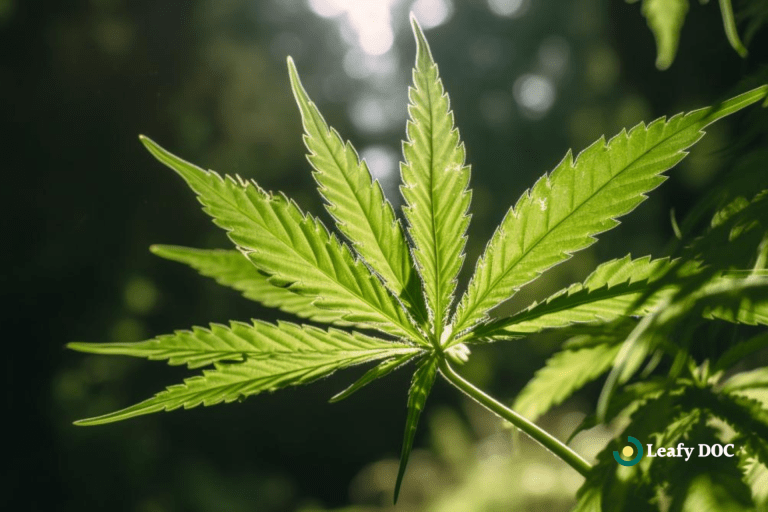Heroin Addiction
Can medical marijuana help people who are recovering from Heroin addiction? Find out more below.
What is Heroin?
Heroin is an opioid drug made from morphine, a natural substance extracted from the seed pod of the opium poppy plant. It is typically sold as a white or brown powder or sticky black substance known as “black tar heroin.”
Heroin binds to opioid receptors in the brain, producing feelings of euphoria, pain relief, and relaxation. However, it is also highly addictive and can cause various negative side effects, including drowsiness, slowed breathing, nausea, vomiting, itching, and confusion. Overdose can lead to respiratory depression and even death.
Heroin use is illegal in most countries. The drug is classified as a Schedule I substance in the United States, meaning it has a high potential for abuse and no currently accepted medical use. There are effective treatments for heroin addiction, including medication-assisted treatment, therapy, and support groups.
How do people get addicted?
Heroin is a highly addictive drug that can lead to physical and psychological dependence with repeated use. Here are some of the factors that can contribute to heroin addiction:
- The drug’s intense and rapid onset of euphoria: When heroin is injected or smoked, it can produce an intense rush of pleasure and euphoria that users may find difficult to resist.
- Tolerance: With continued use, the body becomes tolerant to the effects of heroin, meaning that users need increasingly larger doses to achieve the desired results.
- Withdrawal symptoms: When someone physically dependent on heroin stops using the drug or reduces their dose, they may experience withdrawal symptoms such as nausea, vomiting, diarrhea, muscle aches, and anxiety. These symptoms can be very unpleasant and can drive users to continue using the drug to avoid them.
- Psychological factors: Some people may use heroin to cope with emotional pain or stress or escape difficult life circumstances. Over time, these psychological factors can contribute to addiction.
Not everyone who uses heroin will become addicted, and addiction can develop even after relatively brief periods of use. That’s why it’s essential to seek help if you or someone you know is struggling with heroin use.
What are the symptoms of heroin addiction?
Here are some common symptoms of heroin addiction and abuse:
• Using heroin more frequently or in more significant amounts than intended
• Spending a lot of time obtaining, using, and recovering from heroin
• Neglecting responsibilities at home, work, or school due to heroin use
• Continuing to use heroin despite negative consequences such as relationship problems, financial difficulties, and legal issues
• Continuing to use heroin despite physical or mental health problems
• Tolerance to the drug’s effects, meaning that more of the drug is needed to achieve the same effects
• Withdrawal symptoms when attempting to stop using heroin, including nausea, vomiting, diarrhea, muscle aches, and anxiety
• Social isolation and withdrawal from friends and family
• Changes in behavior or mood, such as lethargy, apathy, or mood swings
• Increased secrecy or lying about drug use
• Injection marks, bruises, or scars on the body from heroin use
• Neglecting personal hygiene and appearance
• Loss of interest in activities that were once enjoyed
• Cravings for heroin or preoccupation with obtaining and using the drug.
Diagnosis & Treatment
Heroin addiction is a severe condition that can significantly impact a person’s health and well-being. Diagnosis and treatment of heroin addiction typically involve a combination of physical exams, psychological evaluations, and laboratory tests.
Diagnosis:
- Physical exam: A doctor will perform a physical exam to assess the physical symptoms of heroin addiction, such as skin infections, needle marks, and other signs of drug use.
- Psychological evaluation: A doctor or mental health professional may also perform a psychological evaluation to assess a person’s mental health and determine if they have co-occurring mental health conditions.
- Laboratory tests: Laboratory tests, such as urine drug screens or blood tests, may also be used to confirm the presence of heroin or other drugs in a person’s system.
Treatment:
- Medication-assisted treatment (MAT): MAT involves using medications, such as methadone, buprenorphine, or naltrexone, to help reduce cravings and withdrawal symptoms. These medications can be prescribed by a doctor and are typically used in combination with behavioral therapies.
- Behavioral therapies: Behavioral therapies, such as cognitive-behavioral therapy (CBT) or contingency management, can help individuals learn coping strategies, address underlying issues that contribute to addiction, and prevent relapse.
- Support groups: Support groups, such as Narcotics Anonymous (NA), can provide a sense of community and support for individuals in recovery.
- Residential treatment: Residential treatment programs can provide a structured environment and intensive support for individuals who need more intensive treatment for their addiction.
The most effective treatment for heroin addiction is typically a combination of medication-assisted and behavioral therapies. Individuals with heroin addiction need to work with a qualified healthcare provider to develop an individualized treatment plan that meets their needs.
Can medical cannabis help?
Medical cannabis may potentially help people recovering from heroin addiction in several ways, but it’s important to note that more research is needed to confirm these potential benefits. Some possible ways that medical cannabis may aid in heroin addiction recovery include:
- Reducing withdrawal symptoms: Withdrawal symptoms from heroin can be severe and uncomfortable. Medical cannabis may help relieve nausea, vomiting, and anxiety.
- Managing pain: Chronic pain is a common issue for people in recovery from heroin addiction. Medical cannabis may relieve pain and inflammation, potentially reducing the need for opioid painkillers.
- Reducing cravings: Some research suggests that certain compounds in cannabis may help reduce cravings for opioids, although more research is needed to confirm this potential benefit.
- Improving sleep: Insomnia and other sleep disturbances are common during heroin withdrawal and recovery. Medical cannabis may help promote sleep and reduce sleep disturbances.
- Addressing mental health issues: Many people with heroin addiction struggle with mental health issues such as anxiety, depression, and PTSD. Medical cannabis may help alleviate these symptoms, improving overall mental health and reducing the risk of relapse.
It’s important to note that while medical cannabis may benefit people recovering from heroin addiction, it is not a replacement for evidence-based treatments such as medication-assisted treatment (MAT) and behavioral therapies. People considering using medical cannabis as part of their addiction recovery should consult with a qualified healthcare provider.
Last Updated: June 14, 2024
Get Your Medical Card
Connect with a licensed physician online in minutes
Table of Contents
Keep Reading
-
Improving Mood And Well-being With Terpenes In Cannabis
Boost your mood and well-being with terpenes in cannabis. Unlock the secret to a happier, healthier life today! Click here to discover the power of terpenes for mood enhancement.
-
Enhance Your Meditation Practice With Cannabis
Uncover the transformative power of cannabis meditation to enhance your practice and find inner peace. Elevate your mindfulness journey today with this enlightening guide!
-
Exploring The Benefits Of CBD For Workouts
Uncover the amazing benefits of CBD for your workouts and recovery in this comprehensive guide. Maximize your fitness potential with CBD workout benefits – start optimizing your routine today!



